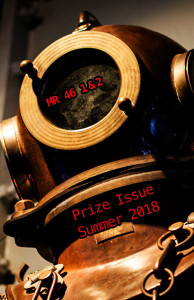One of the controversies circulating in the writing world has to do with cultural appropriation. What this buzz word boils down to is writing a story in which the protagonist is from a culture other than your own, one that is underrepresented in the publishing world. It could be a man writing from a female protagonist’s point of view, or a white writer with an Asian, Black, Native American, etc. protagonist.
One side argues that as writers we use our imagination and routinely imagine ourselves into characters unlike ourselves. Not every writer of crime fiction is a serial murderer. E. B. White didn’t have to be a pig to write Charlotte’s Web. Plus creating stories with characters from other cultures increases literary diversity.
The other side argues that you cannot understand someone from another culture as well as a member of that culture can. And by taking advantage of your privileged position to submit stories about already underrepresented cultures, you make it harder for members of those cultures to have their own, more genuine stories published.
I think both sides are right. We writers do use our imagination. We do need more diversity. At the same time, as I said in my review of The Help, I have little patience for unrealistic characters created by someone who obviously knows little about their experience. Of course, writers are free to write about whomever they choose. But I also remember my fury at the way famous white male authors of the last century—Roth, Mailer, etc.—felt free to define not only how a woman felt and thought, but also how she ought to behave. I still remember tearing up a Philip Roth book whose premise was that if the female lead refused sex with the male protagonist, then she must be insane and should be locked up; therefore the man must gaslight her.
Of course we ought to include diverse characters in our cast to reflect the diversity of people in our lives. When we do, it makes sense to do our research: read books by authors from that culture, talk with people from that culture whom we know, find beta readers who can alert us to our mistakes.
This brings us to the Mississippi Review and its Summer 2018 issue (Vol 46 No.s 1 & 2). While most of the stories are pretty good and a couple excellent, there is one that is laughably bad. The male author has his female protagonist, forty-nine and newly widowed, be reminded by washing dishes that she’s not going to be having sex anymore. Doesn’t every woman think about sex while washing dishes? To make things worse, he has her describe the sex she would be missing using slang that no woman would use, an extremely derogatory phrase used by men to describe women they’ve made use of as less than human.
Now if the author were trying to present a sex-obsessed, self-hating woman, such a phrase might work. But no, she is meant to be Everywoman; well, perhaps a not terribly bright Everywoman. When the second such mistake erupted by page four, I gave up on the story. These mistakes are similar to a goof a white writer I know owned up to recently: having her black protagonist’s teenager complain that her mother is “such a slavedriver”. Nope. Wouldn’t happen.
These errors should have disqualified the story, but the editor and associate editors listed in the magazine are all male. Yet another argument for more diversity in the publishing world. The VIDA count is a good way to track gender, race and other factors in publishing.
My intention, though, is to pick on the story, not the magazine. As I said, there are some excellent pieces in this issue. One that I loved transposed the film Chinatown to a circus and the Jack Nicholson character to a clown, which makes sense when you think about it. Another accurately conveys a woman’s struggle with overwhelming grief. Ironically, the story that won their 2018 fiction prize is written from the point of view of a rodeo bull. I have no idea how a bull actually thinks, but I found the story interesting. I hope the author did his research. Perhaps he works with bulls or interviewed those who do.
There is no doubt that we writers are going to write the stories we need to, the ones that grab hold of us and won’t let go. How we weigh their demands against other issues is up to each one of us. But what writer doesn’t want to create the most authentic characters possible, the ones who draw the reader in? Doing our research, learning all we can about each character’s world, consulting experts: these are all part of the writer’s job.
Have you ever been shocked or dismayed by an absurdly unrealistic character in a story?

